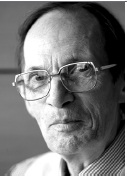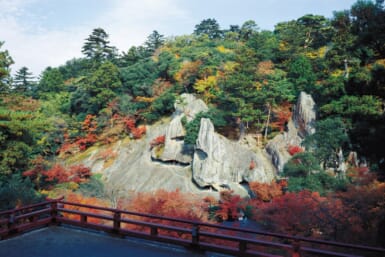I have been a member of the Foreign Correspondents’ Club of Japan (FCCJ) for something over 40 years. I joined the place in 1964, when I came out here to open a Tokyo office for the Financial Times. These days the club is much then, as it was now. It is dominated by old guys in their 60s. The average age of the members is roughly that of Methuselah, which was 975 or thereabouts. No one under the age of 30 could possibly want to spend time there of an evening. There are no longer any dice-laying World War Two veterans in sight, but otherwise it is the same dull old structure, almost calculated to drive away those who want to dance.
And yet I love the place.
The other day I was host to a small group of people, Japanese friends, and we sat around chatting about the club. How did it come about that this huge professional organization came into existence? I mean they have foreign correspondents’ clubs in other parts of the world — London, Paris and New York to name a few, and throughout the Far East (Seoul, Hong Kong, Bangkok & etc). Yet none compare with our institution in size that I know of. We have an annual turnover (sales) of close to $10 million, and somewhat over 2,000 members.
To be sure, most of them — fully three-quarters — are not journalists. But the roughly 23 percent who are hacks constitute the yeast in the situation. We run the show, manage it and quarrel about it.
Twice in the last month I was asked to take care of professional functions at the club, I mean host them. On one occasion our guest was an Indian economist, a chap called Dr. Raj — the chief economist at the Asian Development Bank in Manila; on another evening our speaker was a Ms. Tsuji, the former mistress of Kakuei Tanaka, the disgraced prime minister. Honestly, it is a tremendous honor to have such opportunities fall into one’s lap. You also learn a lot. For example, I learned from Dr. Raj, an enchanting man, that the prospective long-term growth rate in his native India as in China is 7 percent, as compared with under 2 percent here.
What that means is that the great bulk of growth in the world economy in the next few years, say up to 2020, is going to be in this part of the world — in Asia. Already, if you allow for the different prices — a hair-cut costs far less in Shanghai than in Tokyo — China is easily, far and away, the largest economy in Asia, second only to America in the world, leagues ahead of Japan. Some of the audience said yes, but hey what about the pollution over there? Our guest waved such questions aside, if with exquisite good manners, so much as to say “study more.”
The other guest, Ms. Tsuji, came a couple of nights later. She talked about her long- time partner, Kaku-san. I thought she was wonderful. Just 77 years old, she was there to publicize her book — just published by Kodansha — of which she gave me a signed copy. But consider what she undertook. For the first, and surely the only time in her life she faced up to an audience of Westerners and Japanese and made a speech. The old geisha acquitted herself honorably.
“Did he beat you?” she was asked.
“You bet,” she replied.
“Did he really hit you hard?”
“Yes,” she responded, bright as a button. “I saw stars once.”
“Did he ever say sorry?”
“Certainly not,” she rejoined, a bubble of laughter welling up inside her.
Once at home, we read her book. Her life was one of monumental hardship. As a child in the 1930s, she had no food. In effect, she was sold to her geisha madame, and so survived, meeting Kaku-san at 19, whereupon she was, I guess, sold up the line to the future prime minister. You can see that would make for a spot of domestic turbulence. Oh yes. But did she show resentment? Not a bit of it. In fact, she has lived her long life in the shadow of Makiko, Tanaka’s famous daughter. She and her two sons have, until now, stayed out of the limelight.
So why did she break the vow of silence, and come over to our place? There’s just something about the way the club functions. We encourage indiscretion. We are a great platform.
So here’s what I wanted to say. If you are under 35, you can join us for ¥2,000, if you are a journalist or write for a living. Or edit, or publish. If you don’t belong, I suggest that you do.









_KRAACH-クリスタルバスソルト-385x257.jpg)